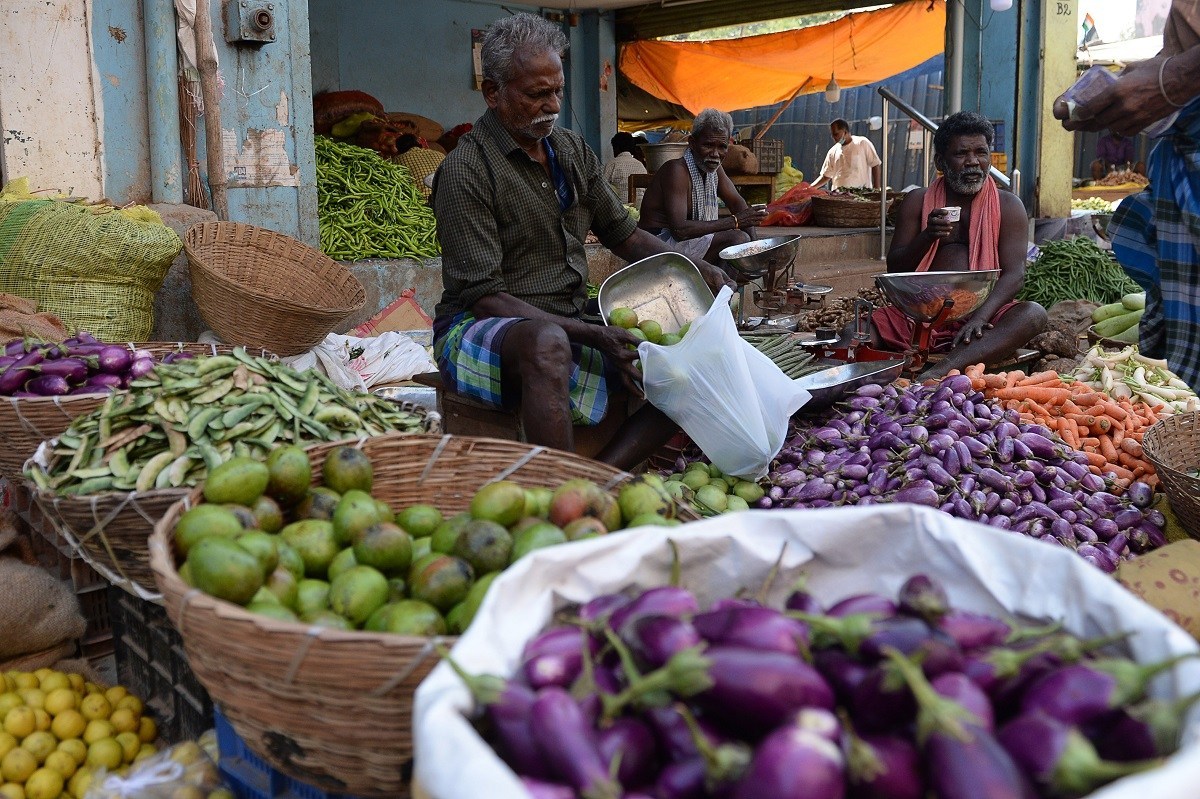[ad_1]
India’s soaring fuel prices are now taking a heavy toll on food prices and inflation in general, and experts fear they may affect the country’s economic recovery from the Covid-19 induced slowdown.
According to the data released by Commerce and Industry Ministry, the country’s wholesale price index-based inflation doubled to a 27-month high of 4.7% in February, as against 2.03% in the previous month.
The food index rose to 3.31% in February, compared with a 0.26% contraction in the previous month. Inflation in pulses remained elevated at 10.25%, while that for fruit shot up to 9.48%. Crude petroleum inflation rose to 7.18% in February compared with 10.3% contraction in the previous month.
Earlier, retail inflation or consumer price index had surged to a three-month high of 5.03% in February, up from 4.06% in January. Inflation in the prices of retail food items doubled to 3.87% in February from 1.96% in January.
Gasoline and diesel prices are now at record levels in most parts of the country with the hardening of global crude prices. The rise in diesel prices always has a telling effect on industrial activity.
For the Reserve Bank of India, rising inflation could affect its strategy of keeping borrowing costs low to support economic revival amid the pandemic. A rise in the interest rates to combat price-growth will lead to a spike in borrowing costs, which will hurt consumption and business activity. Experts feel the rising inflation will reduce hopes for any interest rate reduction in the near term.
The monetary policy committee of the central bank is scheduled to meet in the first week of next month. In its February review, the committee had suggested that the federal and state governments should reduce taxes on petroleum products to provide relief to customers.
Taxes make up more than half of the fuel cost and the federal and state governments are using the revenue gains from taxes on retail fuel to boost spending. Their usual sources of revenue from the goods and services tax, the corporate tax and income tax have dried up due to the near-total closure of business activities during the lockdowns.
Finance Minister Nirmala Sitharaman had said the issue of tax burden on petroleum products was something that the federal and state governments should discuss as both drew revenue from these items. She also said there is no proposal as of now to bring crude oil, gasoline, diesel, jet fuel and natural gas under the Goods and Services Tax. These commodities were kept outside its purview, as the federal and state governments depend heavily on revenue from this sector.
The federal government levies an excise duty of 32.90 rupees per liter on gasoline and 31.80 rupees a liter on diesel, a year ago it was 19.98 rupees for gasoline and 15.83 rupees for diesel. The value added tax levied by the states vary from one state to another and currently Rajasthan tops the list (36%).
Meanwhile, as per the Petroleum Ministry data, India’s fuel consumption has fallen for the second month in a row in February to its lowest since September last year. Consumption of fuel, a proxy for oil demand, fell 4.9% to 17.2 million tons year-on-year in February, while on a monthly basis it has slipped by 4.6%. In January, India had registered its first month-on-month decline in five months.
[ad_2]
Source link













